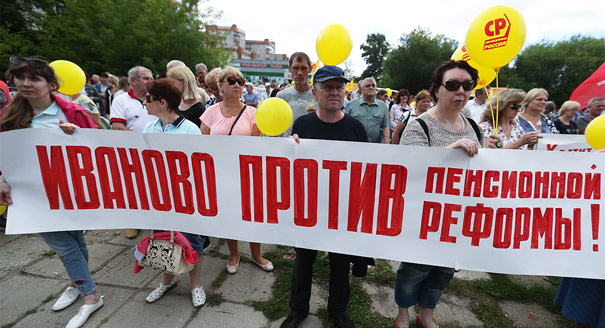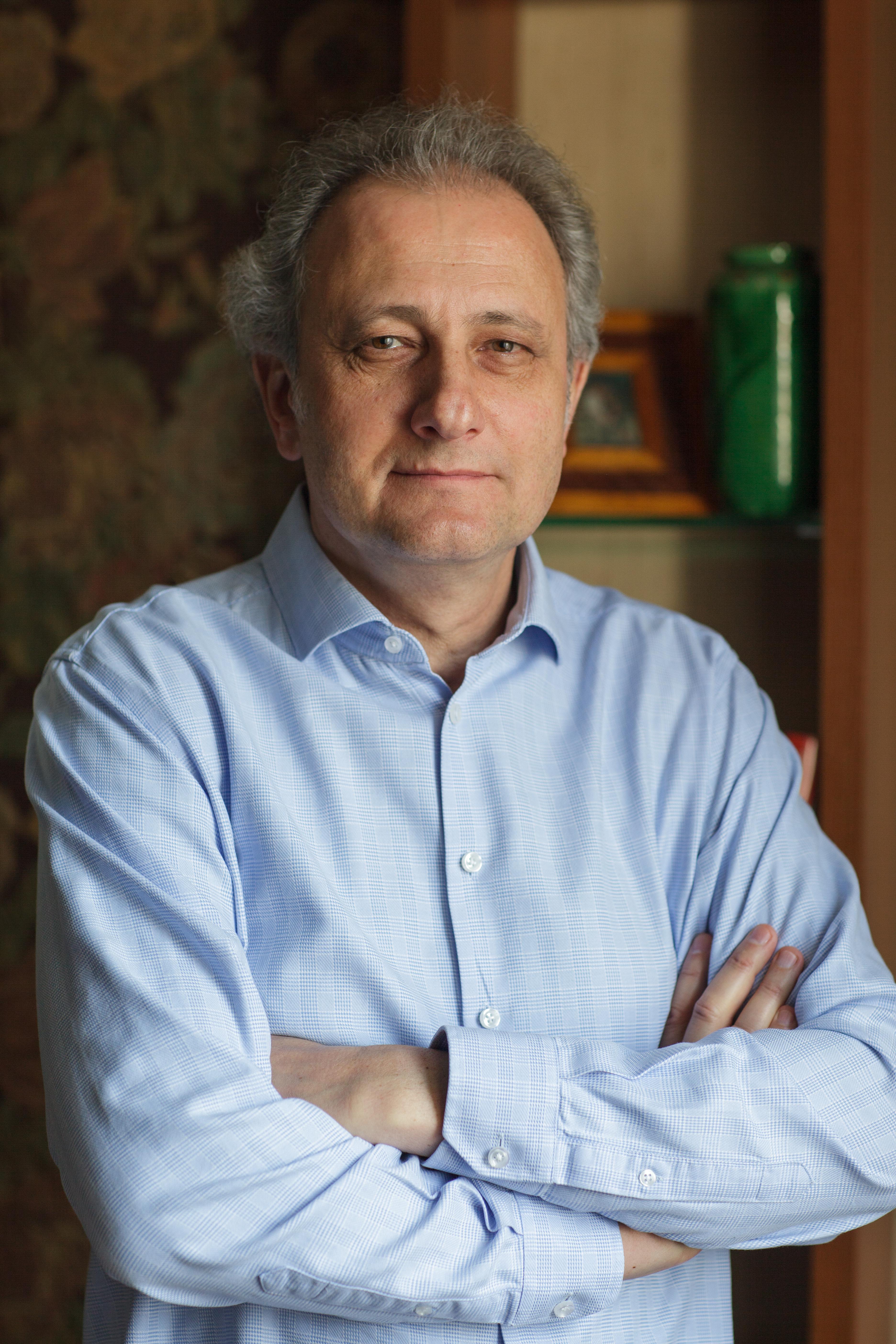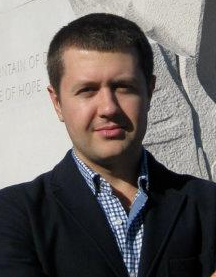{
"authors": [
"Andrei Kolesnikov",
"Denis Volkov"
],
"type": "commentary",
"centerAffiliationAll": "",
"centers": [
"Carnegie Endowment for International Peace",
"Carnegie Russia Eurasia Center"
],
"collections": [],
"englishNewsletterAll": "",
"nonEnglishNewsletterAll": "",
"primaryCenter": "Carnegie Endowment for International Peace",
"programAffiliation": "",
"programs": [],
"projects": [],
"regions": [],
"topics": []
}
Source: Getty
Are Russians Ready for Lasting Change?
The Russian public’s appetite for change has increased considerably in the past two years, according to a new poll by the Carnegie Moscow Center and the Levada Center. What kind of change do people want, and what are they prepared to do about it?
Why has public opinion changed?
By 2017, the euphoric effect of the 2014 takeover of Crimea from Ukraine had slowly worn off. A poll that year revealed that Russians wanted their government to shift its focus from foreign to domestic policy. Respondents said that it was time to concentrate on the economy and social issues.
The year 2018 appears to have been pivotal. The decision to raise the retirement age announced that summer, along with other unpopular economic policies, caused discontent. Government approval ratings tumbled sharply and have stayed comparably low since, according to a separate Levada poll.
A strong protest vote during the municipal and regional elections in September 2018, when several gubernatorial elections broke with recent tradition and went to second rounds of voting, suggested that a demand for change does exist. Russia’s civil society has awakened from its slumber and become more active again.
Who wants change?
Five social groups are most in favor of comprehensive change, according to our poll:
- People aged forty to fifty-four, who are unhappy with the labor market and the move to increase the retirement age.
- People with a higher level of education.
- People on low incomes.
- Residents of mid-sized cities.
- Critics of the current ruling regime.
Who doesn’t want change?
Among those who do not support change are:
- People who did not finish their secondary education.
- People over the age of fifty-five, who are more likely to harbor concerns that any changes might make things worse.
- Muscovites, of whom 18 percent do not want change of any kind. People in the capital enjoy a better quality of life than those in other parts of the country, and are therefore less inclined to change anything.
Is demand for change affecting Putin’s image?
Increasingly, demands for change have political connotations, and it is becoming more common to hear criticism of President Vladimir Putin. While blame is still shifted to other actors—such as government bureaucrats, the prime minister, individual ministers, and oligarchs—Putin increasingly receives his share of criticism and is treated on the same level as other government officials.
This is a very important development. After Russia’s seizure of Crimea, Putin became the country’s symbol and standard-bearer, an untouchable political deity. But his divine essence began to dwindle after 2018 and a human being reemerged, whom many people appear to like a whole lot less.
Putin’s recent actions, such as the government reshuffle and proposal to include guarantees of pension indexation in the constitution, are the authorities’ answers to this demand for change.
Does Putin’s decline in popularity clear the path for a new politician to rise to power?
Not really. When asked which Russian politician “can offer a road map for change,” 39 percent of respondents had no answer. This figure has risen sharply since 2017 and reflects the continued lack of alternatives to Putin. The president remains at the top of the list of potential modernizers. However, this status seems to be a legacy of his former stellar rating.
Behind him in the list stand two veteran leaders of parliamentary “opposition” parties that are in fact loyal to Putin: Vladimir Zhirinovsky of the Liberal Democratic Party of Russia and Communist Party leader Gennady Zyuganov, both of whom trail Putin by a large margin. Not far behind them is Pavel Grudinin, the Communist Party presidential candidate in 2017–2018. Outside the system, opposition leader Alexei Navalny has the same level of support as Putin’s most popular cabinet member, Defense Minister Sergei Shoigu.
Are the Russian people ready to take action to bring about change?
Probably not. It is far from certain that respondents are prepared to alter their own behavior in order to meet the challenges of societal change. People are unlikely, for example, to embrace change that results in higher living costs and the potential loss of their position in society.
What’s more, most respondents do not believe that they can influence the introduction or direction of future changes. This is the case for most senior citizens and the poor, who are forced to rely on the state for assistance. As many as 70 percent of these people feel that they are unable to affect any changes. They see the state as the main political and economic actor, since it controls resources and has the necessary mechanisms to manage and distribute national wealth.
Are there any exceptions?
Yes. Almost 40 percent of the respondents said that they can influence changes, at least somewhat. These are mostly people under the age of forty, affluent Russians, and Muscovites. Up to half of the members of these groups can be described as moderate optimists. The young, most educated, and affluent generally have more upbeat civic-minded people in their midst.
Apart from participating in elections, which is increasingly a ritual form of expressing confidence or no confidence in the current regime, civic activism consists of uniting with others to sign open letters and petitions, and file complaints and inquiries. People do not really see this form of activism as a way to achieve serious changes. Rather, it serves as a method of fighting for their rights, a technique that could lead to minor improvements in their daily lives.
What does all this mean for the future?
The fact that so many Russians are ready for change indicates that, while not gearing up for a revolution, society wants at least to nudge the government toward changes that are primarily socioeconomic, but also administrative and political in nature.
But the public does not want change at its own expense. Russians still believe that the state is the main tool for the redistribution of national wealth, and that it must do its job more efficiently.
If the thirst for political change continues to gain momentum in Russia, full-scale demand for political freedoms and alternatives may emerge quite soon. Should a civic movement come together, government authorities could be forced to allow greater political freedoms.
So far, the state appears totally unprepared to do this. In fact, it has been drifting toward greater authoritarianism. Here is where the key contradiction of the next few years lies: Russian society will be developing faster than the state, potentially leaving the latter behind.
About the Authors

Former Senior Fellow, Carnegie Russia Eurasia Center
Kolesnikov was a senior fellow at the Carnegie Russia Eurasia Center.

Denis Volkov
Director of the Levada Center in Moscow
Denis Volkov is the director of the Levada Center in Moscow.
Carnegie does not take institutional positions on public policy issues; the views represented herein are those of the author(s) and do not necessarily reflect the views of Carnegie, its staff, or its trustees.